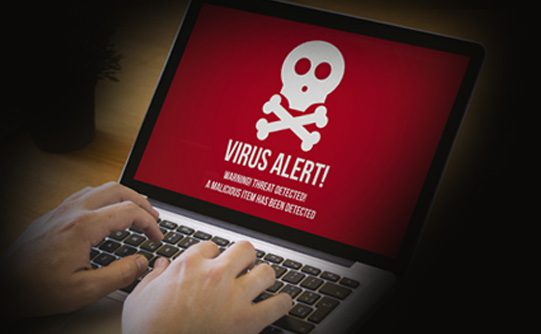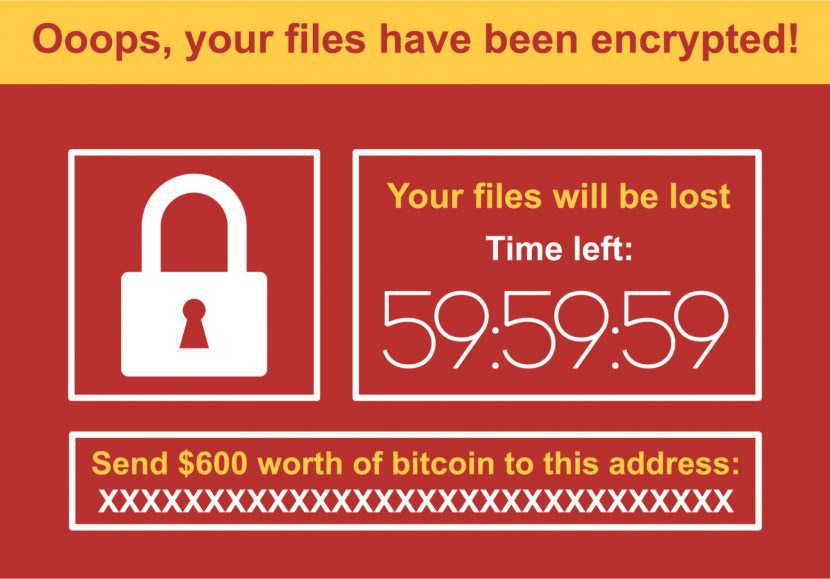All businesses-no matter how big or small-can be targets of ransomware attacks. Working with a quality IT company can help minimize the security risks to your business.
We may only hear about larger ransomware attacks, such as the Sinclair Broadcast Group. However, ransomware attacks can happen to any size business, in any industry, and in any location.
Fortunately, employing the right IT services and preparation an help safeguard your business.
What is Ransomware?
Simply put, ransomware is a form of malware. It encrypts your files. Then, the hacker demands a ransom to restore your access to your data upon payment.
For company’s that negotiate with the hackers, the cost can range from a few hundred to a few million dollars. Typically, this is paid in cryptocurrencies such as Bitcoin.
How Ransomware Can Take Over Your Business
First, ransomware can infiltrate your system through email phishing campaigns. This is an all too common type of cyber attack where hackers pretend to be a colleague or vendor to trick you into opening a malicious file.
Second, ransomware can take hold when employees visit infected websites and download the malware onto their computers. Often times, the criminals target highly-trafficked sites. Other times, they attack obscure sites that receive little traffic but still rank on search engines for specific searches.
Finally, a more aggressive form of ransomware can sneak in to your system via software updates. The criminals often target a software update that is used by a large number of machines. Once they find a vulnerability, they use this as an entry point to take over your computers.
Common Types of Ransomware
There are three main types of ransomware: File Locker Ransomware prevents users from accessing their files until the ransom is paid; Crytolocker Ransomware encrypts targeted files and demands a ransom to decrypt them; Locker Ransomware locks the computer’s desktop.
However, they all have one thing in common: if you do not pay the ransom, your data is gone forever. In most cases, there is no possible way for you to retrieve your data without paying the ransom or restoring from a backup that was created prior to being infected by ransomware.

How an IT Company Can Help Protect Your Business from Ransomware
Once hackers have infiltrated your system with ransomware, you need to act quickly. This can be achieved through hiring the services of an IT company. They will run security audits and tests on your network and computers to detect vulnerabilities.
However, what can an IT company do for you prior to being victimized by ransomware? A quality IT company will be able to offer several preventative and proactive measures to help you avoid catastrophe.
1. Education & Training
Like all threats in life, education is vital in helping spot red flags. As an IT company, we know how quickly ransomware can affect a business. Our clients often do not. Therefore, it is imperative to provide education to your staff on the best practices and common risk factors.
CST will explain and warn your staff the dangers of: visiting unfamiliar websites, clicking links on spam emails from unknown senders, downloading files without knowing where or who it is from, or using a weak password.
2. Create a Data Backup & Recovery Plan
Have you ever had to write an important letter or email that was not saved on your computer? You then spend hours looking for that file or trying to recreate the written work. If ransomware gets into your system, the same scenario will play out if you do not have backups of your data.
Regular backups of your entire system are vital to protect yourself from ransomware and other cyber-attacks. When it comes to IT, planning ahead can make all of the difference between ease and peace-of-mind versus fear and uncertainty.
Backups are essential for minimizing malware threats. An IT company can store your backup data offline and offsite, so that it is 100% unaffected by the ransomware attack.
3. Firewall Setup & Maintenance
A firewall is a service that inspects data coming in and out of your computer. Most firewalls are installed on servers to protect businesses. Firewalls help protect against viruses, malware, 3rd party intrusion, DDOS attacks and more.
Your firewall is likely to be your first line of defense when it comes to cybersecurity. However, in order to be effective, it needs to be properly managed and maintained.
4. Keep Devices & Softwares Up to Date
It’s important to keep up on updates for both your anti-virus software as well as your operating system itself. These updates fix security holes that malicious hackers exploit to steal personal information or infect computers with new strains of ransomware or malware.
Professional IT companies will update antivirus software automatically. This reduces the chances of infection by delivering crucial patches directly to their clients devices.
5. Setup a VPN & Secure Remote Access
These days, more companies rely on remote work. Working from home has been especially popular since the COVID-19 pandemic began back in early 2020.
A VPN (virtual private network) encrypts all data coming in and out of a device before transferring it over the internet. This keeps important information safe from hackers.
Additionally, your IT company should offer secure remote access (SRA) software with endpoint protection. SRA allows you to securely connect from anywhere in the world and work on files as if you were in the office.
Conclusion
As simple as it seems, ransomware has caused a mountain of data loss. These days, more and more hackers are exploiting vulnerabilities in file encryption to make a quick buck.
If you haven’t yet done so, consider hiring an IT company to secure your network and protect all the important files stored on your system. This will go a long way in avoiding future ransomware attacks.

